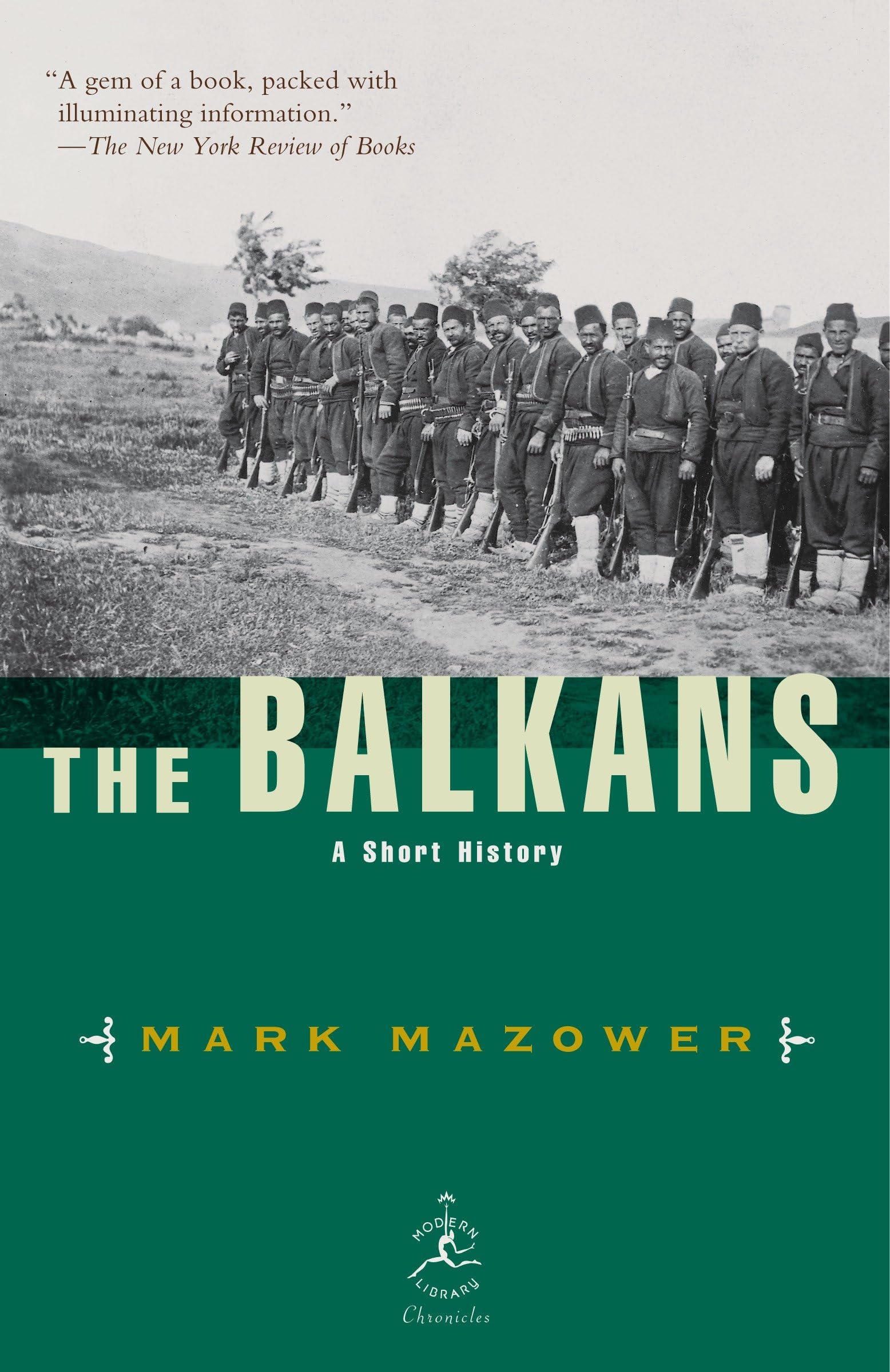Throughout history, the Balkans have been a crossroads, a zone of endless military, cultural, and economic mixing and clashing between Europe and Asia, Christianity and Islam, Catholicism and Orthodoxy. In this highly acclaimed short history, Mark Mazower sheds light on what has been called the tinderbox of Europe, whose troubles have ignited wider wars for hundreds of years. Focusing on events from the emergence of the nation-state onward, The Balkans reveals with piercing clarity the historical roots of current conflicts and gives a landmark reassessment of the region’s history, from the world wars and the Cold War to the collapse of communism, the disintegration of Yugoslavia, and the continuing search for stability in southeastern Europe. “A gem of a book, packed with illuminating information.” — The New York Review of Books “An invaluable resource for anyone hoping to gain an initial understanding of Balkan history.” — The New York Times “An excellent primer on the region’s history.” — The Economist “A highly suggestive analysis of an inexhaustible subject.” — Publishers Weekly Throughout history, the Balkans have been a crossroads, a zone of endless military, cultural, and economic mixing and clashing between Europe and Asia, Christianity and Islam, Catholicism and Orthodoxy. In this highly acclaimed short history, Mark Mazower sheds light on what has been called the tinderbox of Europe, whose troubles have ignited wider wars for hundreds of years. Focusing on events from the emergence of the nation-state onward, The Balkans reveals with piercing clarity the historical roots of current conflicts and gives a landmark reassessment of the region?s history, from the world wars and the Cold War to the collapse of communism, the disintegration of Yugoslavia, and the continuing search for stability in southeastern Europe. Throughout history, the Balkans have been a crossroads, a zone of endless military, cultural, and economic mixing and clashing between Europe and Asia, Christianity and Islam, Catholicism and Orthodoxy. In this highly acclaimed short history, Mark Mazower sheds light on what has been called the tinderbox of Europe, whose troubles have ignited wider wars for hundreds of years. Focusing on events from the emergence of the nation-state onward, "The Balkans reveals with piercing clarity the historical roots of current conflicts and gives a landmark reassessment of the region's history, from the world wars and the Cold War to the collapse of communism, the disintegration of Yugoslavia, and the continuing search for stability in southeastern Europe. Mark Mazower is a professor of history at Birkbeck College, London, and a former professor of history at Princeton University. He is the author of several books, most recently Dark Continent: Europe’s Twentieth Century . Over millions of years, the play of the earth's tectonic plates pushed up a series of mountain ranges in the Mediterranean along the geological frontier between Europe and Africa. Stretching from the Iberian peninsula in the west to the ranges of southeastern Europe in the east, they eventually link up with the mountain chains of Asia Minor and central Asia. To their north, the great Eurasian lowlands extend with scarcely a break from Calais to the Urals. There rainfall is abundant, arable land is plentiful and numerous navigable rivers connect the interior with the sea. To the south, it is a different story: good farming land becomes scarcer, the ground is more broken and rainfall less frequent. Unlike the mountain chains guarding the necks of the Iberian and Italian peninsulas, the Balkan ranges offer no barrier against invasion, leaving the region open to easy access and attack from north and east. On the other hand, their irregular formation hinders movement between one valley and the next. Communication is often easier with areas outside the peninsula than between its component parts, so that Dubrovnik, for instance, has had closer ties for much of its history with Venice than with Belgrade. In this way, mountains have made commerce within the region more expensive and complicated the process of political unification. The effect of mountains is felt everywhere from the skies to the sea. Rain shadows deprive much of the peninsula of the moisture found in Europe's continental climatic zone. Kolaßin in Montenegro has an average annual rainfall of 104 inches, while a little way east, Skopje in Macedonia has only 18 inches per year. A tiny coastal strip running down the Dalmatian coast to western Greece enjoys sufficient rain to soften the impact of the harsh Mediterranean summers. On Corfu the vegetation is luxuriant; the Cyclades, by contrast, are parched and dry. The former is able to support itself, the latter--as wartime starvation revealed--relies on food imports to keep going. In general, the annual precipitation east of the mountains is at least 10 to 20 inches less than farther west, leading to recurrent drough













